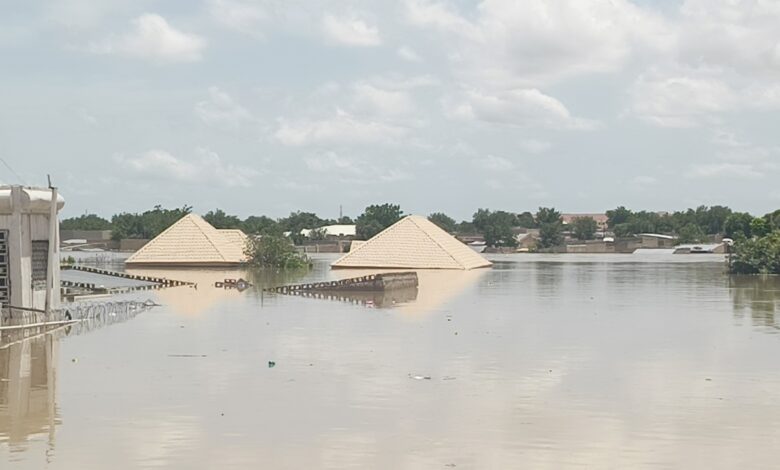Norwegian Refugee Council Expresses Concern Over Maiduguri Flooding
Reacting to the development in a statement shared with journalists on Tuesday, Thomas Hill, NRC Country Director in Nigeria, said the situation is dire, and the flooding has only worsened conditions for those already struggling.

An international aid group, the Norwegian Refugee Council (NRC), has expressed concerns over the recent flooding in Maiduguri, the capital of Borno, saying it will exacerbate the already dire humanitarian crisis gripping the northeastern state if immediate assistance is not provided to “prevent further suffering and loss.”
HumAngle reports that Monday flooding, triggered by heavy rainfall and the overflow of the Alau Dam — Maiduguri’s main water source – submerged most parts of the metropolis.
It destroyed farmlands and homes, leaving many without access to essentials like shelter, food, and clothing. Also, the water has forced the state authorities to postpone the resumption of schools by two weeks, as medical facilities remain inaccessible for residents across the city.
Reacting to the development in a statement shared with journalists on Tuesday, Thomas Hill, NRC Country Director in Nigeria, said the situation is dire, and the flooding has only worsened the conditions for those already struggling.
“Our top priority is to ensure that families receive the support they need, while collaborating with local authorities to develop long-term solutions,” he said. “Emergency assistance is urgently required, including temporary shelter, hygiene kits, food, and essential supplies. Many of those affected have lost their homes and livelihoods, and without immediate intervention, the crisis will deepen.”
The group, therefore, urged relevant stakeholders to step forward to mitigate the impact of the flooding.
“It is imperative to act swiftly and collectively to address the immediate and long-term needs of those affected by this catastrophic flooding,” the statement read.
While Nigeria is used to seasonal flooding, authorities often blame heavy rainfall and climate change.
However, poor planning, ignored environmental guidelines, and inadequate infrastructure have also contributed.
In 2022, Nigeria experienced its worst flood in more than a decade, which killed over 600 people and displaced around 1.4 million others from their homes.
Support Our Journalism
There are millions of ordinary people affected by conflict in Africa whose stories are missing in the mainstream media. HumAngle is determined to tell those challenging and under-reported stories, hoping that the people impacted by these conflicts will find the safety and security they deserve.
To ensure that we continue to provide public service coverage, we have a small favour to ask you. We want you to be part of our journalistic endeavour by contributing a token to us.
Your donation will further promote a robust, free, and independent media.
Donate HereStay Closer To The Stories That Matter




